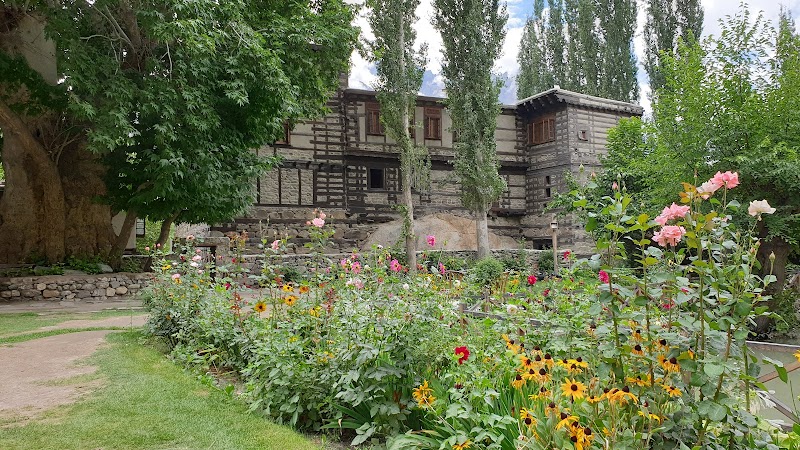
Experience The Vibrant Pulse of Skardu Cultural Festival
The Skardu Cultural Festival transforms a rugged mountain town into a vibrant celebration of Baltistan’s heritage. Combining vivid traditional performances with scenic mountain views, this festival offers an immersive experience for travelers interested in culture and adventure alike.
Stay Hydrated at High Altitude
Skardu’s elevation can quickly dehydrate visitors; carry enough water and pace yourself especially when exploring on foot.
Dress in Layers
Temperatures swing widely from day to night; layering clothing keeps you comfortable throughout festival activities.
Wear Durable Footwear
Uneven terrain near festival sites and neighboring hikes requires sturdy shoes with good grip to prevent injury.
Plan Around Weather Forecasts
Mountain weather can change abruptly; check local forecasts to avoid surprises and protect your gear accordingly.
Experience The Vibrant Pulse of Skardu Cultural Festival
Each year, Skardu, Pakistan, plays host to an event that hums with the rhythms of tradition and the energy of the Baltistan region—the Skardu Cultural Festival. Set against the rugged backdrop of the Karakoram mountains, this festival offers more than just colorful celebrations; it serves as a living bridge between ancient customs and modern expressions. Visitors stepping into Skardu during the festival season are met with a dynamic scene where the natural world and human heritage engage fiercely yet harmoniously.
The festival unfolds across several venues in downtown Skardu, typically lasting three days. Streets burst into movement as folk dancers weave intricate patterns, the cadence of their footfalls echoing against stone houses. Traditional music threads through the air, often punctuated by the hearty laughter and spirited chants of locals and visitors alike. The scent of woodsmoke from teahouses mingles with the earth’s crisp breath, inviting you to savor warm apricot tea or freshly baked local bread.
Planning your visit around early September to mid-October can pay dividends. On these crisp autumn days, the relentless aggression of summer’s heat yields to cool, inviting air, ideal for exploring both the festival and nearby natural wonders. With daylight stretching into the early evening, festival-goers enjoy ample time to experience open-air performances and handcraft bazaars without battling the fatigue of early darkness.
The festival’s heart lies in its diverse displays of cultural heritage. Witness traditional Balti dances performed by men and women in embroidered attire, hear local tales spun alive by master storytellers, and savor a feast of regional cuisine that’s both simple and satisfying—rich with barley, meats, and wild herbs. For photographers and cultural enthusiasts alike, the event is immersive yet practical: unobtrusive participation lets you capture genuine moments without overwhelming the scene.
Skardu's mountainous climate means preparation is key. High-altitude sun drives day temperatures up quickly yet thin air can sap energy. Staying hydrated and layering clothing will help you engage fully without fatigue. Sturdy footwear is necessary for navigating uneven pavement and the surrounding trails if you decide to extend your adventure.
For those who want to step beyond the festival sites, nearby hikes like the brief trek to Kharpocho Fort allow a practical adventure with panoramic views of Skardu Valley challenging you to engage with the rugged landscape. Preparing with basic trekking gear ensures you meet the environment halfway, respecting its fierce individuality.
In essence, the Skardu Cultural Festival offers an engaging and practical adventure into the heart of Baltistan’s living culture. It invites you not just to watch but to participate actively in a tradition fiercely guarded by its people and shaped by its terrain, perfect for travelers ready for cultural immersion without losing grip on real-world logistics.
Nearby Trips
All Adventures
Boat Charters
Water Activities
Adventures near Skardu, Pakistan
Discover the unique and memorable adventures that make Skardu, Pakistan special.
Frequently Asked Questions
When exactly is the Skardu Cultural Festival held?
The festival usually takes place in early September through mid-October, aligning with the harvest season and autumn’s mild weather.
Are there recommended accommodations near the festival venues?
Yes, most visitors stay in guesthouses or hotels within Skardu town, offering quick access to festival events and local dining.
Is the festival accessible for casual visitors or only serious culture seekers?
The event is welcoming to all visitors. Casual attendees can enjoy market stalls, food, and music without deep cultural knowledge.
What kind of local foods should I try during the festival?
Try Balti dishes like apricot chutney, yak meat stews, and butter tea, which reflect the region’s traditional flavors.
Are there any environmental concerns to keep in mind?
Visitors are encouraged to respect waste disposal rules and avoid single-use plastics. Skardu’s delicate mountain environment benefits from responsible tourism.
Can I visit nearby natural landmarks during the festival?
Yes, short hikes to places like Kharpocho Fort or the peaceful Sheosar Lake make excellent day trips from Skardu during the festival.
Recommended Gear
Water Bottle or Hydration Pack
Maintaining hydration is critical at high altitudes and during extended periods outdoors.
Layered Clothing
Allows you to adapt quickly to temperature changes from day to night.
Sturdy Walking Shoes
Protects feet on uneven pavement and is useful for optional hiking.
Sun Protection (Hat, Sunscreen)
High-altitude sun can cause burns and fatigue; sun protection is non-negotiable.
Local Insights
Hidden Gems
- "The panoramic viewpoint at Kharpocho Fort offers sweeping vistas rarely crowded during festival days."
- "The quiet lanes near the old bazaar, where artisans craft traditional jewelry and weaving."
Wildlife
- "Snow partridges patrolling rocky slopes"
- "Himalayan marmots whose whistles punctuate the mountain air"
History
"Skardu has historically been the gateway to the great Karakorams, a crossroads of traders and mountaineers for centuries. The festival preserves Baltistan’s mix of Tibetan and Islamic cultural influences."
